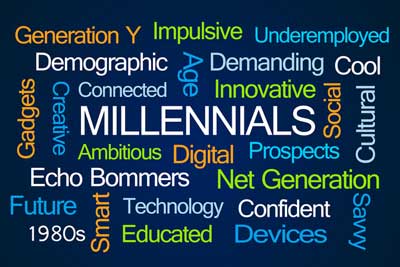- Advertising
- Bare Metal
- Bare Metal Cloud
- Benchmarks
- Big Data Benchmarks
- Big Data Experts Interviews
- Big Data Technologies
- Big Data Use Cases
- Big Data Week
- Cloud
- Data Lake as a Service
- Databases
- Dedicated Servers
- Disaster Recovery
- Features
- Fun
- GoTech World
- Hadoop
- Healthcare
- Industry Standards
- Insurance
- Linux
- News
- NoSQL
- Online Retail
- People of Bigstep
- Performance for Big Data Apps
- Press
- Press Corner
- Security
- Tech Trends
- Tutorial
- What is Big Data
How Big Data Could Pave the Way for Millennials to Get a Credit Score Without Having Credit

Many Millennials were just kids when the American economy went belly up in the 90s. The blowback after the housing market crash changed the established credit application process, making it much harder to obtain a Visa, MasterCard - or car loan.
Today, Millennials want to go shopping just like Mom and Dad, but the timing of the market crash has inhibited their ability to earn a credit score. Everyone knows you have to have credit to get credit. But in 2017, big data may be riding to rescue the Millennials from the have-no-credit-get-no-credit cycle.
Traditional FICO versus the Big Data Cloud
The FICO credit score has been the standard metric for credit worthiness in this country since the late 80s. FICO is a software provider that created the predictive analytics behind the FICO scoring. The score, ranging from 300 to 850, features an algorithmic prediction of your likelihood of being a deadbeat. All credit has been based on this methodology for 30 years, but that may be about to change.
Reuters recently reported that FICO has begun applying a new metric to their scoring process to accommodate Millennials who are just beginning their credit journey. FICO starts the credit search with the standard deep dive on established credit. If the metric lacks sufficient information, FICO goes to the big data cloud to seek payment history in non-traditional areas.
Using this methodology, FICO is now able to leverage a high-performance computing cluster of data that encompasses payments to phone companies, utilities, and rent. They say they’ve been able to qualify another 50 million people for credit. This is particularly important to both Millennials and the economy, because, in just a few short years, these youngsters will rule the consumer world.
The Latest Disruptors - Millennial Buying Power
Here’s a little backstory; Millennials, born between 1981 and 2005, will represent a higher percentage of the population by 2020 than any other generation in history. This is the first generation that has grown up with handheld technology. Consider some of the stats, as laid out by First Data:
- Baby boomers totaled 77 million Americans; the Millennials top the charts at 80 million. They are the largest population cohort in history.
- Millennials will control an estimated $7 trillion in liquid assets by 2025.
- 86% use their smartphone for, literally, everything, from banking to texting.
- 63% of adult Millennials don’t even have a credit card.
Millennials are the first generation to grow up with technology and big data, and it has changed the way companies are doing business in literally every industry. It’s no surprise that they’re even changing the most traditional of all industries - banking and finance. The Millennials, with their backbone of tech innovation, are the true societal disruptors.
Learn more about us and find out how the big data cloud can help your business keep pace with the buying trends of Millennials. The Bigstep Metal Cloud stores, manages, and distributes big data to create actionable business analytics that will empower your business.
Readers also enjoyed:

Expert Interview with Paul F. Roberts on Cyber Security and Big Data
1.jpg)


1.jpg)
Leave a Reply
Your email address will not be published.